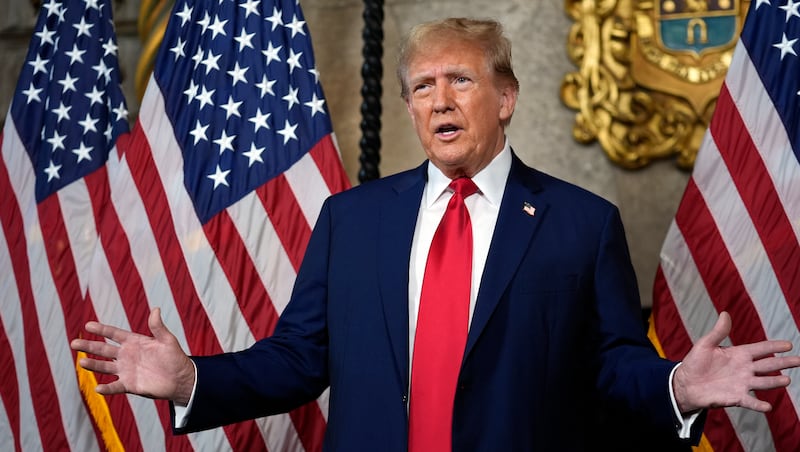
The Supreme Court will issue its final set of rulings on Monday, and it’s saved one of its biggest cases for last.
The court is expected to address former President Donald Trump’s claim of presidential immunity in one of the decisions.
No matter what the ruling says, it will change the 2024 election, and it could also affect every future president of the United States.
Presidential immunity case
The case, called Trump v. United States, stems from Special Counsel Jack Smith’s efforts to hold Trump accountable for his alleged role in the Jan. 6, 2021, riot at the U.S. Capitol.
After Smith investigated that day’s events, Trump was indicted on four criminal charges in August 2023, including conspiracy to defraud the United States.
Trump fought back against the charges by claiming presidential immunity. He said he cannot be prosecuted for his official acts as president and also that prosecution can only follow impeachment by the House and a conviction in the Senate, according to SCOTUSblog.
The trial on the charges was meant to begin earlier this year, but it’s been on hold as judges at various levels have considered the scope of presidential immunity.
Trump’s claims ultimately failed in front of two lower courts, which said that Smith’s case against the former president could proceed. But then the Supreme Court got involved, weighing whether to put the D.C. Circuit’s ruling on hold and then, at the urging of Smith, whether to fully brief and hear arguments on the immunity question.
In late February, the Supreme Court chose the second option and added Trump v. United States to its April schedule.
Supreme Court debates Trump
At oral arguments, the attorneys arguing for and against Trump, along with the justices, debated what’s at stake in the case.
The conversation was about more than Trump’s future and the future of the 2024 election. It was about the future of the presidency, which Trump’s team said would be threatened by a ruling against the former president.
D. John Sauer, Trump’s attorney, argued that the definition of “official acts” and the scope of presidential immunity needs to be broad to ensure that future presidents won’t feel vulnerable to future prosecution and distracted from their duties.
But several of the justices pushed back against that argument, saying that it would be dangerous for presidents to feel as if they couldn’t be held accountable for wrongdoing.
“I think if someone with those kinds of powers, the most powerful person in the world, with the greatest amount of authority, could go into office knowing there would be no potential penalty for committing a crime … what’s the disincentive from turning the Oval Office into a seat of criminal activity?” said Justice Ketanji Brown Jackson at one point, as the Deseret News reported at the time.
The Supreme Court’s ruling in the case will likely focus on the presidency as an institution rather than on Trump’s specific behaviors. It could end up being quite limited in scope if, for example, the justices decide to clarify the definition of “official acts” and then instruct the lower courts to reconsider Trump’s case in light of that clarification.
Regardless of what’s in the majority opinion, it will affect the special counsel’s case against Trump, likely determining whether it’s able to proceed before the election in November.
Supreme Court rulings coming Monday
Besides the decision in the presidential immunity case, the Supreme Court is expected to issue two or three other rulings on Monday, depending on whether or not paired cases about content moderation policies on social media are decided together.
-
In Corner Post v. Board of Governors of the Federal Reserve System, the justices were asked to consider the statute of limitations for claims against policies put in place by a federal agency.
-
In Moody v. Netchoice and Netchoice v. Paxton, the justices weighed whether state officials can regulate how social media sites moderate content. The cases stem from two separate state policies, so the court may issue two separate opinions.
On decision days, rulings are uploaded to the Supreme Court’s website beginning at 8 a.m. MDT.
EMEA Tribune is not involved in this news article, it is taken from our partners and or from the News Agencies. Copyright and Credit go to the News Agencies, email news@emeatribune.com Follow our WhatsApp verified Channel





